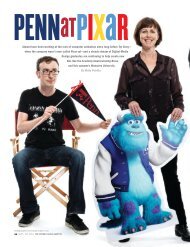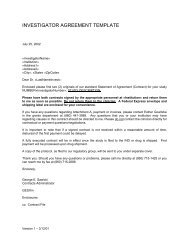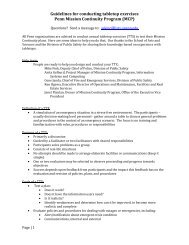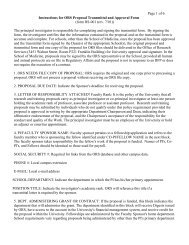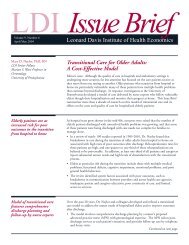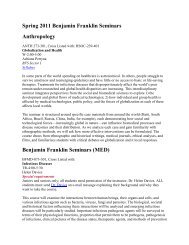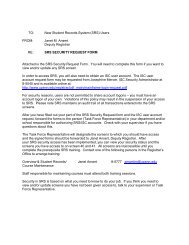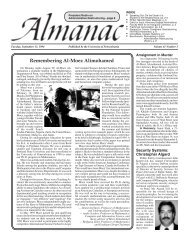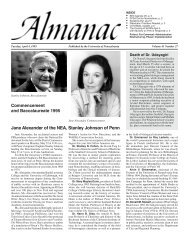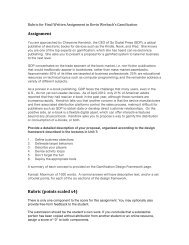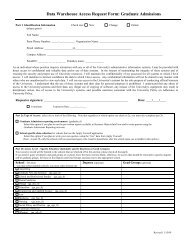Benjamin Franklin Scholars Seminar fnar 238/538 â401 ...
Benjamin Franklin Scholars Seminar fnar 238/538 â401 ...
Benjamin Franklin Scholars Seminar fnar 238/538 â401 ...
You also want an ePaper? Increase the reach of your titles
YUMPU automatically turns print PDFs into web optimized ePapers that Google loves.
Open Book, page 2<br />
p r e r e q u i s i t e s , e x p e c t a t i o n s , r e q u i r e m e n t s<br />
There are no prerequisites for this course.<br />
The class is intended for students who are strongly motivated to pursue a particular interest,<br />
and who can work independently—that means with plenty of feedback and support but little<br />
supervision.<br />
Because most of the work will be done outside of class, you will be expected to self-direct your<br />
work, both in terms of adhering to a (self-imposed) time schedule and in taking the initiative to<br />
find the resources you need.<br />
The freedom you will have in shaping your project might present difficulties different from a<br />
traditional classroom assignment. You will be engaged in a creative process which is, by nature,<br />
an open-ended endeavor; it comes with surprises and challenges.<br />
weekly presentations of work-in-progress<br />
Every Wednesday, we will discuss your project in class. You will present the progress you have<br />
made and receive feedback.<br />
From the very beginning, we will focus on articulating information visually, on keeping material<br />
records of one’s thinking process, on actually creating these records in cases in which we would<br />
normally forego the visual and rely on a (written or mental) note. You should get into the habit<br />
of drawing diagrams, visualizing abstract relationships, writing down ‘irrelevant’ thoughts, collecting<br />
seemingly unrelated artefacts and clippings, taking photographs, and collaging. In short,<br />
you should allow yourself to explore without the constant corrective of what is ‘relevant’ to your<br />
project. These visual records (preferably in the form of a bound sketchbook) will be part of your<br />
weekly presentation and should help you to convey your ideas more clearly.<br />
As we explore different media — computers, drawing, photography, letterpress, paper crafts, collage,<br />
typewriter, etc.— you will be expected to experiment with the newly acquired skills by applying<br />
them to in-progress models of your project. This might be a single letterpressed sheet, a digitally<br />
printed double-page spread of text and images, a paper dummy of an experimental binding<br />
method, etc.<br />
peer editing and feedback<br />
Students will be expected to engage with each other’s projects. This will involve—in addition to<br />
in-class discussions—reading fellow students’ work-in-progress and making editing suggestions.<br />
student slide presentations<br />
We will discuss traditional and alternative book forms and look at examples of book-related<br />
arts. During the semester, each student will be asked to make a 10–15 minute presentation<br />
accompanied by images (slides, powerpoint, etc.) on assigned topics. The presentation should<br />
include outline handouts.



